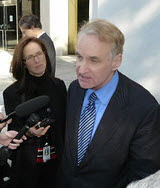Sara Coffey: What does it mean to be fiscally responsible?
Coffey #Coffey

What does it mean to be fiscally responsible? When it comes to Vermont transportation, it means being clear about where the rubber meets the road.
Like other states, in Vermont we pay for our transportation program using a mix of funding sources. Revenue comes from the gas and diesel tax, a portion of the motor vehicle purchase and use tax, revenue and fees associated with the use of the state’s airports, and fees for driver’s licenses and vehicle registrations.
In turn, these state transportation revenues unlock federal dollars to maintain and repair state and town roads and bridges, improve Vermont’s railways and airports, fund public transportation, provide municipal grants to address clean water and climate resiliency and create a 21st-century transportation system that’s clean and affordable for everyone.
In most cases, for every $2 the state invests, we can draw down $8 in federal matching-grant funds. Since entering office, Governor Phil Scott has touted his track record for not raising fees. On the face of it, that approach may appear to benefit Vermonters, but in fact it means that Vermont is losing out on opportunities to receive federal funding. This places an additional tax burden on Vermonters to make up the difference not collected in nominal fees.
Last February, the Chief Fiscal Officer from Governor Scott’s Agency of Transportation testified to the House Transportation Committee that our state transportation fund was on trend to be $15 million short. In other words, we wouldn’t have enough money to cover the projected budget or to “meet the match” — the amount Vermont must contribute to tap into those important federal funds.
Rather than provide a solution to address this financial gap, last winter the Governor presented a transportation budget that had a $10 million deficit. His solution was to fill the $10 million gap using a transfer from our general fund, rather than cutting expenses or proposing a new source of revenue. When Vermonters are struggling to make ends meet, redirecting dollars from public safety or human services did not seem socially or fiscally responsible.
In 2021, Congress passed the bi-partisan Infrastructure Investments Job Act (IIJA), which authorized $1.2 trillion for transportation. This presents Vermont with amazing opportunities to address many of our transportation infrastructure needs and provide good-paying jobs for Vermonters. To tap into these opportunities, we must come up with state dollars to leverage the federal match, but we cannot do that at the expense of the most vulnerable Vermonters. Instead of siphoning away precious general fund dollars — dollars that pay for things like housing and childcare — last year the Legislature came up with a responsible long-term fiscal solution: We raised fees for transportation-related services, fees that had not been raised since July 1, 2016.
The new DMV fee increases (effective January 1, 2024) are expected to yield $10 million for the current fiscal year to fill that $10 million gap. For most Vermonters, the impact will be a $9 increase for two-year driver’s license renewal and a $15 increase for annual car registration. These revenues maintain the transportation infrastructure we all use and depend on. Had Governor Scott followed Vermont’s prior, long-standing practice of proposing a fee bill once every three years, these fee adjustments would have been much smaller and incremental. However, even with this increase, Vermont’s driver’s license fees are among the lowest in the Northeast.
In early January, the House Transportation Committee received a transportation revenue update from the Joint Fiscal Office. Transportation revenues are coming in $5 million below budget for the current fiscal year. Had we not increased the fees, we’d be looking at a $15 million gap, much more difficult to manage. On January 12, Governor Scott’s administration presented their proposal for the mid-year FY24 budget adjustment, which was thin on details about how we might address this shortfall in the current fiscal year.
With or without the collaboration of the Governor, House Democrats are committed to finding equitable solutions to the fiscal challenges we face. We’re building a Vermont that works for all of us, and a responsible transportation budget will help us get there.
Rep. Sara Coffey, D-Windham 1, is the chair of the House Transportation Committee. The opinions expressed by columnists do not necessarily reflect the views of Vermont News & Media.